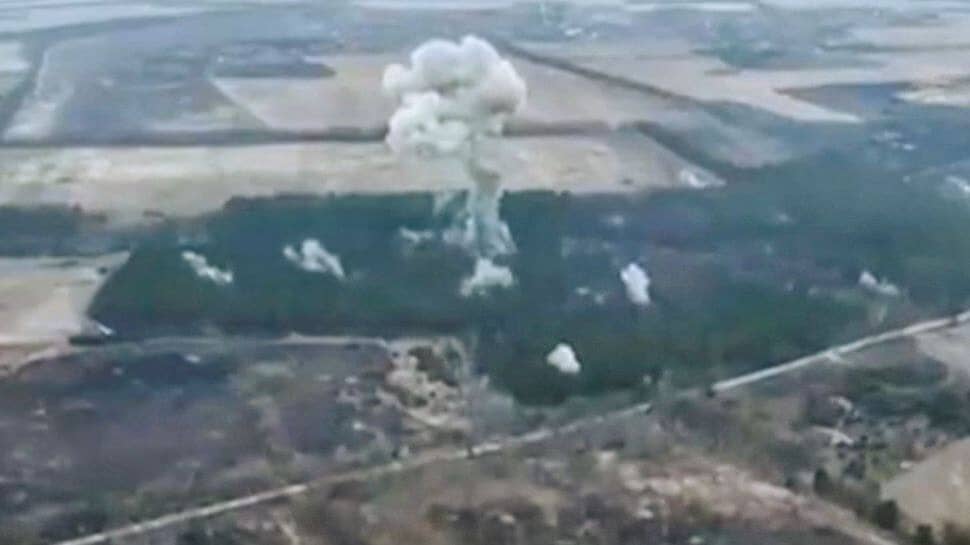The news is abuzz with “Operation Spider’s Web,” Ukraine’s latest drone offensive against Russian airbases, reportedly causing significant damage. This bold move raises immediate questions about Russia’s likely retaliation – conventional or, chillingly, nuclear? While a nuclear response seems highly improbable given the strategic and international fallout, a sharp conventional escalation is almost guaranteed.
But beyond the immediate battlefield, this conflict continually forces us to grapple with fundamental principles of international relations, particularly the concept of national sovereignty and a nation’s right to choose its alliances.
Ukraine, NATO, and Russia’s Red Line
Let’s revisit a core argument often heard: “Isn’t Zelensky responsible for this war? Russia just wanted Ukraine not to join NATO; that was the only condition.”
On the surface, this simplifies a deeply complex geopolitical reality. From the perspective of international law, Ukraine, as a sovereign nation, absolutely has the right to determine its own foreign policy and security alliances. This includes the aspiration to join NATO. This isn’t a new whim; Ukraine’s desire for integration with Western institutions has been evident since the early 90s, especially after Russia’s 2014 aggression. NATO, for its part, maintains an “open door” policy, asserting that the decision rests solely with the applicant nation and the alliance, not a third party.
Russia, however, views NATO expansion eastward as an existential threat to its security, regardless of NATO’s defensive posture. They argue that military infrastructure closer to their borders poses an unacceptable risk. This long-standing concern culminated in demands for “security guarantees” before the 2022 invasion, including a non-NATO Ukraine.
So, is Ukraine “provoking” Russia by exercising its sovereign right? This is where the debate gets heated.
The Mexican Standoff: A Thought Experiment
To truly understand the nuances, let’s flip the script. Imagine this: What if Mexico, a sovereign nation sharing a vast border with the United States, decided to form a military alliance with Russia? What if Russian troops, equipment, or even advanced missiles were stationed just across the Rio Grande?
The US reaction would be immediate, unequivocal, and forceful.
- Diplomatic Outcry: Expect strong condemnations and severe warnings.
- Economic Pressure: Sweeping sanctions would cripple Mexico’s economy.
- Military Buildup: The US would rapidly increase its military presence along the border and in the Gulf of Mexico, escalating readiness levels.
- Historical Precedent: The Monroe Doctrine, a centuries-old US foreign policy, asserts its sphere of influence in the Western Hemisphere. More acutely, the Cuban Missile Crisis of 1962, when the Soviet Union placed missiles in Cuba, brought the world to the brink of nuclear war. The US response was a naval blockade and an unwavering demand for their removal.
In short, the US would view a Mexico-Russia alliance as a direct and unacceptable threat to its national security, regardless of Mexico’s “sovereign right” to choose its allies.
The Double Standard Dilemma
This thought experiment exposes the uncomfortable truth in international relations: While legal principles of sovereignty and self-determination are universally espoused, their application is often filtered through the lens of great power interests and perceived “spheres of influence.”
The accusation of hypocrisy is therefore powerful:
- For Ukraine: NATO expansion is framed as a sovereign choice, a defensive alliance.
- For Mexico: An alliance with Russia would be deemed a profound security threat, likely met with overwhelming force or pressure.
The “rules” aren’t different on paper, but their enforcement and interpretation are heavily influenced by:
- Power Imbalance: Powerful nations possess the leverage to enforce their security interests.
- Geographic Proximity: Threats on a nation’s immediate border are always prioritized.
- Historical Context: Long-standing doctrines and past conflicts shape current responses.
- Perception of Threat: What one nation sees as defensive, another might genuinely perceive as an existential threat.
Conclusion: A World of Competing Interests
The war in Ukraine is a tragic demonstration of how the legal rights of sovereign nations can clash with the perceived security interests of powerful neighbors. While international law upholds Ukraine’s right to choose its path, Russia’s actions show a willingness to violently impose its “red lines.” The hypothetical Mexico scenario illustrates that most great powers, including the US, would likely react similarly to perceived threats in their own backyards, perhaps using different justifications but with equally forceful outcomes.
The “Great Game” of geopolitics continues, reminding us that while sovereignty is a fundamental ideal, its practical application is often a complex and sometimes brutal negotiation between competing interests and immense power.


